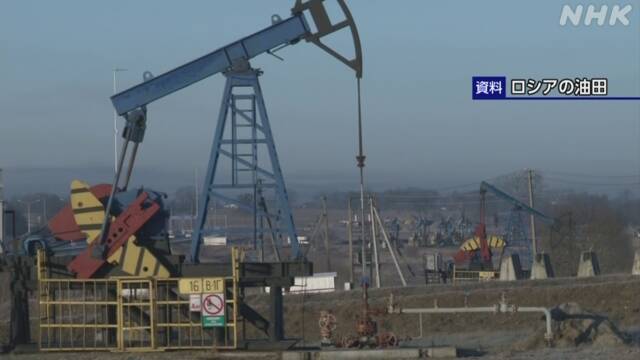The G7 = seven major countries and Australia have announced that they have agreed on new sanctions such as setting the price limit for international trading of Russian crude oil to $ 60 per barrel.
The aim is to suppress the funding sources of Russia, which continues to invade Ukraine in line with the member states of the EU = European Union.
The G7 and Australia have agreed on new sanctions to set a price cap of $60 a barrel for international trade of crude oil shipped from Russia from May 5, the U.S. government said in a statement.
It also bans marine insurance and financial services from G7-based financial institutions for transactions above $60.
Since financial institutions based in the G7 account for about 90% of the world's marine insurance, it is said that the effect will extend to countries that do not participate in the sanctions.
Earlier this month, EU member states also agreed on the same ceiling price and coordinated sanctions aimed at stifling the funding sources of Russia's continuing military invasion of Ukraine.
U.S. Treasury Secretary Janet Yellen, who led the negotiations, commented, ``The Russian economy is shrinking and the fiscal situation is getting tighter, so we can immediately cut into the most important source of income.''
The U.S. government said the sanctions would benefit emerging countries that continue to import Russian crude oil from lower prices.
However, countries participating in this framework, such as the G7, have already decided to phase out imports of Russian crude oil.
Under these circumstances, the future focus will be on how China and India will respond and whether the sanctions against Russia will be effective.
On the other hand, the Russian Far East oil and natural gas development project "Sakhalin 2" in which Japanese companies are participating will not be subject to new sanctions until the end of September next year.

